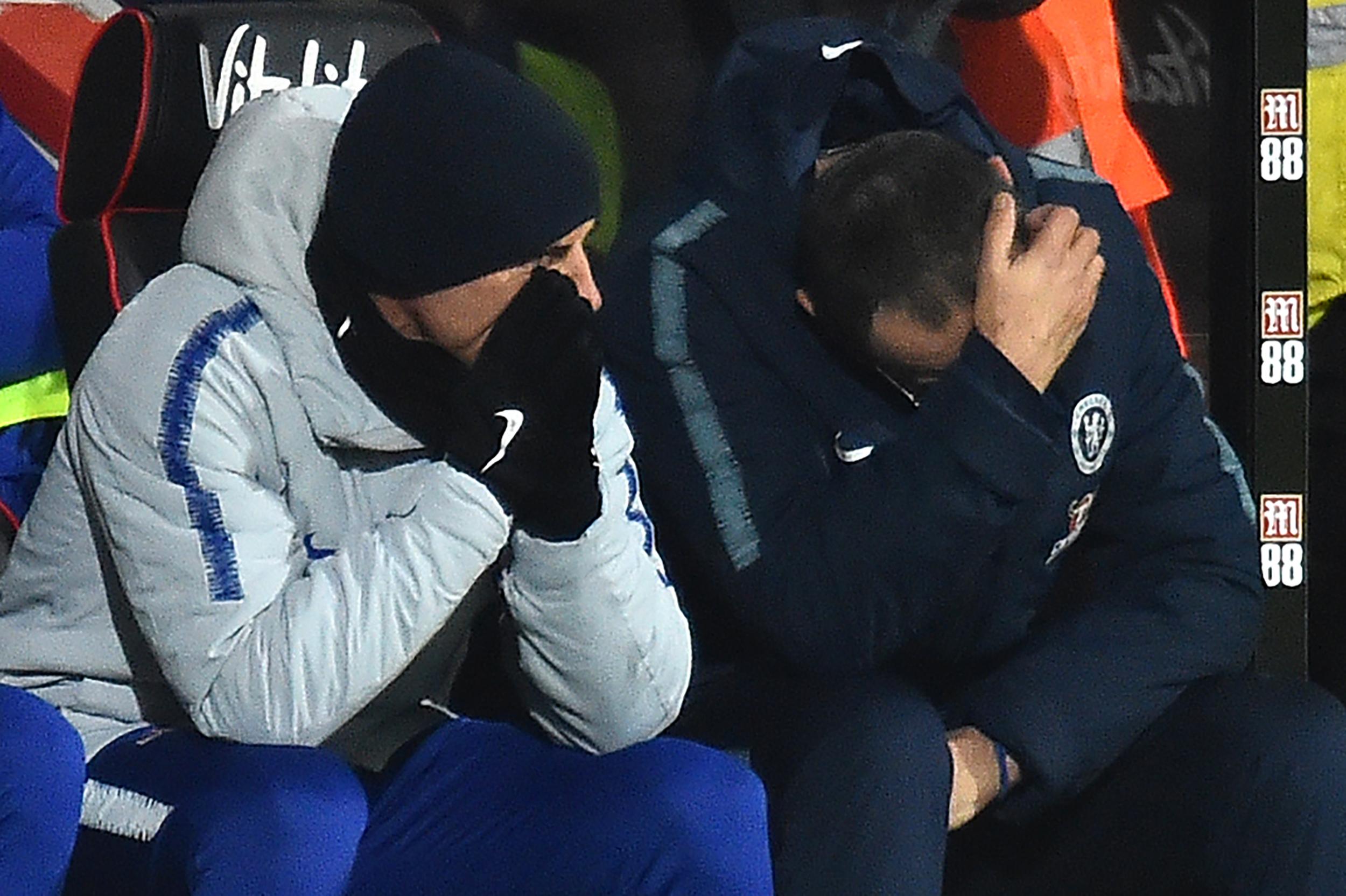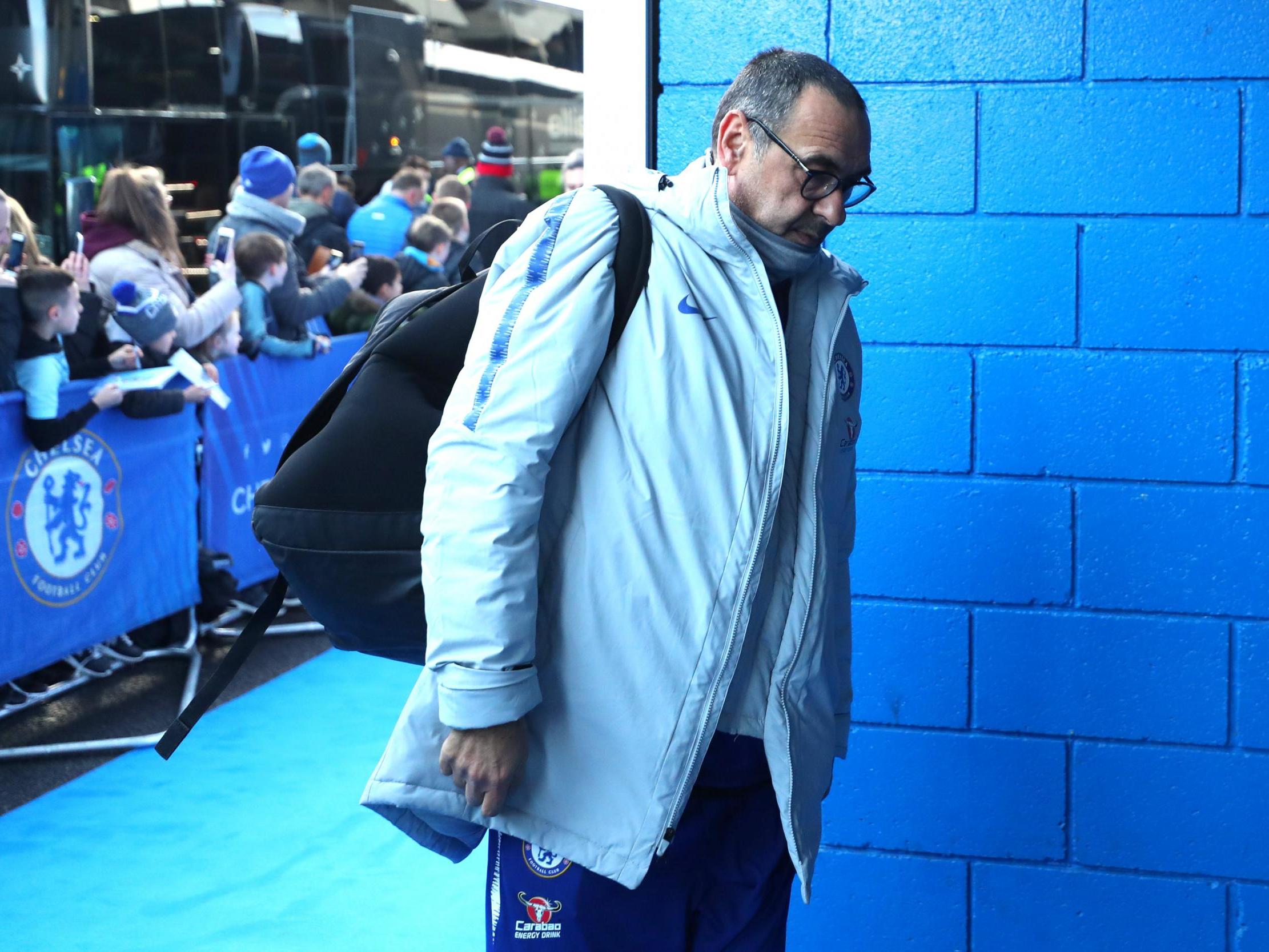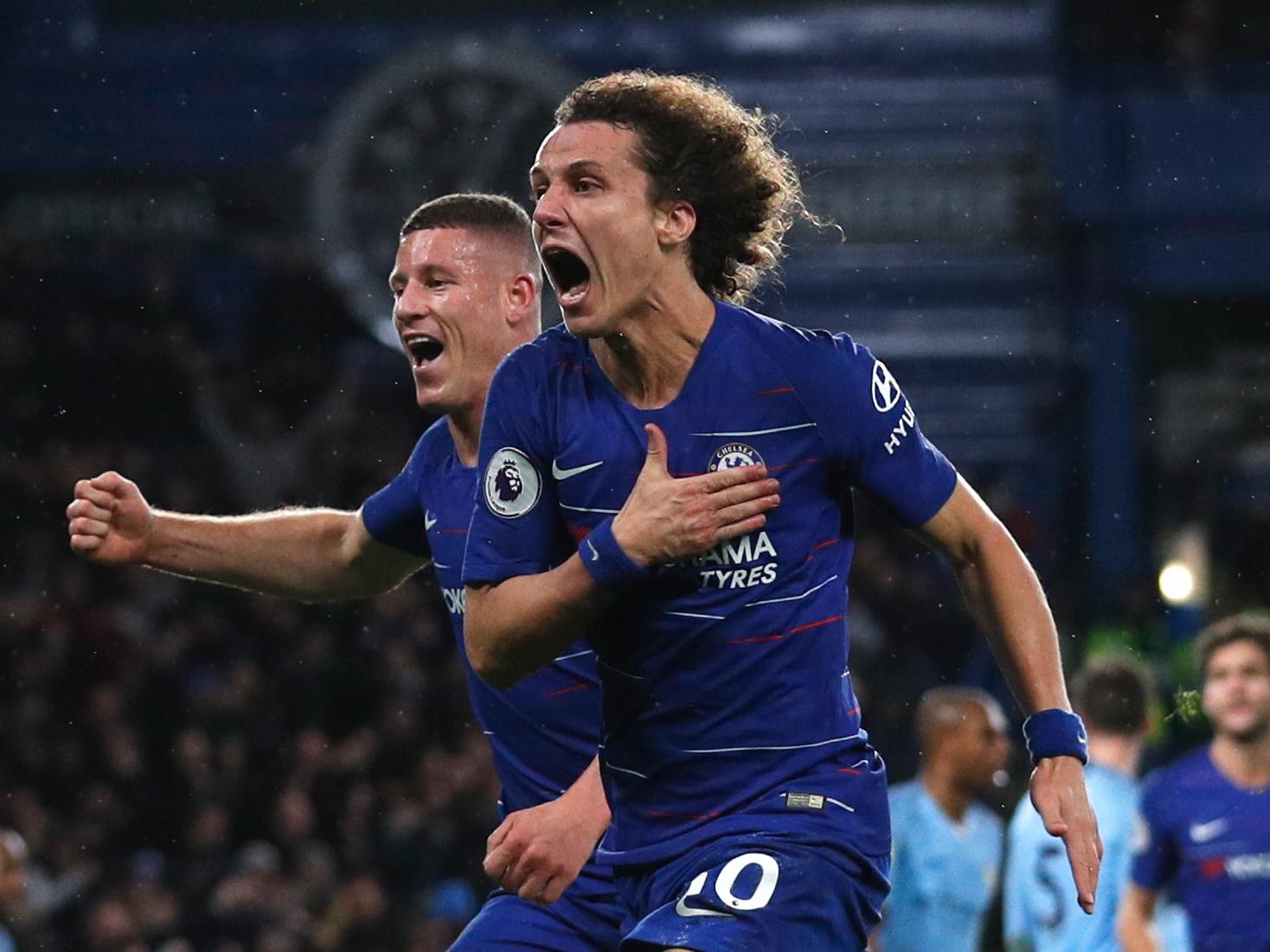Manchester City vs Chelsea: Jorginho and the fundamental problem of balancing process and product
Chelsea travel to the Etihad on Sunday with Maurizio Sarri under pressure to alter his system - but how much compromise is too much compromise?
Regardless of the match, regardless of the moment, Pep Guardiola has always been consistent with one message in football. That is his teams stay consistent to “the process”. It’s a phrase he uses so much.
The fundamental argument is of course that a team can never truly perfect a way of playing if they too often deviate from it, too often take short cuts, and that the end product of results will naturally follow if the process is properly followed.
One of the fundamental tensions to football, however, is between the wider scope of a process and the much narrow requirements of end product. The reality doesn’t always match the theory.
Sometimes, pursuing the process isn’t completely conducive to getting the result. And some results just have to be got. Following a line doesn’t always get you over the line. Sometimes, you have to compromise. But how much compromise is too much compromise?
Few fixtures will better distil this tension than Chelsea’s visit to Manchester City on Sunday. Few players better illustrate this than the one who will be at the centre of the pitch on Sunday, and was at the centre of a transfer tug-of-war between both clubs in the summer, in Jorginho.
As the specifically signed pivot of the Chelsea team, the midfielder has also become the lightning rod for every debate about how Maurizio Sarri’s idea for the game just isn’t working - and may never really work.
There is also a greater tension there between the notorious demands of Chelsea the club, the history of their squad, and the necessities of the Italian’s system.
In other words, can Sarri get the team playing close to what he wants before Roman Abramovich begins to think he doesn’t want him as a manager any more?
For his part, the 60-year-old has shown all the concern for this you’d expect of a man who has had the most untypical coaching career possible: none. Sarri certainly doesn’t feel personally bound by the game’s usual pressures.
That could be heard in his literal dogmatism, and how he insisted after the 4-0 defeat to Bournemouth there would be absolutely no deviation from the process.
“We haven’t even learned the most basic moves yet,” Sarri argued. “We need to work on the basics, the primary foundations of my football, and only then will we try to change a few things.”
It is the first line of that quote that will be of most concern to many around Chelsea, especially given Sarri is now in the job over half a season. This process may not have even really started, at least as regards where the players are.

To many in education, however, it will make a lot more sense. Part of the tension here is indeed Sarri’s atypical coaching career, and approach. As everyone around the Chelsea training ground says, he is as much an educator as a coach, and the first the club have really had in that regard in the Abramovich era. Sarri is effectively trying to teach the squad a new way of playing, but also to properly understand it.
In that, he sees his game in the same way that Guardiola does, that it is an “educative process” as much as a distinctive tactic.
Another tension, however, is that long-term education doesn’t always stand strong in a short-term results business. FA youth coach David Powderly even explains that it really takes a year to properly learn, understand and be able to execute a new play of playing. And that’s before you consider complications like pre-season, European football sapping training time and whether everyone is even fully committed.
The argument for all this is that it worth the wait, and the faith - even if can sometimes feel a bit of a leap of the latter. The idea is that the end of the process will result in something greater than the whole, and can go to greater heights than any more rudimentarily coached side.

Another analogy that can be drawn with education is that it represents the difference between the student who learns something to answer specific exam questions and the student who learns by fully understand something.
This is the type of thinking that produced the intricate but intense interchanging football of Sarri’s Napoli, that eventually got him this job. This is the type of thinking that produced perhaps the greatest side of all time in Guardiola’s Barcelona. This is the type of thinking that has led to some of City’s football now.
This is also what creates something of a dilemma for Sarri this weekend, that cuts to this fundamental tension.
Given that City are so much further along the process that Chelsea are, and just have better players, to play them at their own game would simply seem foolish. You’d have to get very lucky to win, and the danger is getting torn apart.
It has also been proven by Sarri himself that Chelsea can beat this City with a properly pragmatic approach. That is what the 2-0 in December came from, as well as a mere 39% possession.

So, how willing is Sarri to return to it? How willing is he to again break from the long-term process for the short-term goal? Would that detract from the educational process at such a crucial time, when Chelsea’s results have wavered between a 4-0 defeat at Bournemouth and 5-0 win at home to Huddersfield, and when a new key player like Gonzalo Higuain has been introduced? Or would yet another defeat with the same style be more damaging?
The signing of Higuain has highlighted, and helped solve, another issue that had been slowing the process at Chelsea and particularly affecting Jorginho.
The Argentine is not just someone who already understands Sarri’s system, but - more simply - another goalscorer to go with Eden Hazard. Chelsea have basically had too few. That has put even more pressure on Jorginho - the key process player - because there are so few attackers to take attention away from him. One of the reasons he was so effective at Napoli was because, even if opposition managers would seek to man-mark him, there would be so much movement and danger elsewhere that it would naturally pull the other side all over the pitch. That would thereby free up Jorginho, allowing him to get the process going again, to serve the players to provide that end product.
That reflects that the problem is not Jorginho himself, as does Guardiola’s interest in the Italian. And for all the jokes at Chelsea about how he is “teacher’s pet” and “Sarri’s son”, he is also liked and seen as one of the few players who instructs and leads on the pitch. He helps the process.
How he would have fit in a Guardiola side, just moving the ball around to so many goalscorers, would be instructive.
And yet the man who sits there right now brings this issue right round, and completes the City team. There is a lot of end product about Fernandinho, because of how often he goes over the line. He has become the player perhaps most notorious for cynical game-breaking fouls in the Premier League. They aren’t a philosophical part of the process. But they do help it get end product, and results.
Fernandinho is one big reason why Sarri may have to compromise this weekend.
Sarri might have to change for moments like that, in a match like this. It creates an instructive philosophical dilemma.
Join our commenting forum
Join thought-provoking conversations, follow other Independent readers and see their replies
Comments
Bookmark popover
Removed from bookmarks